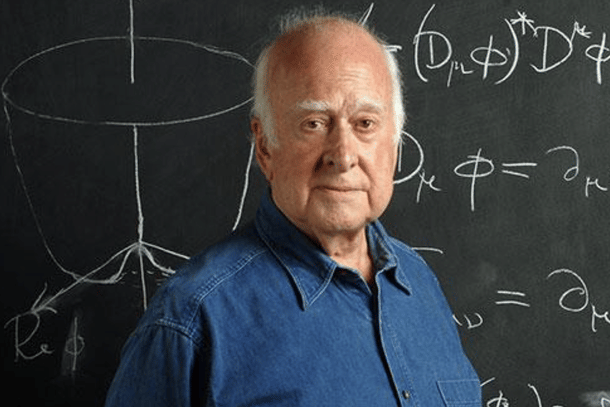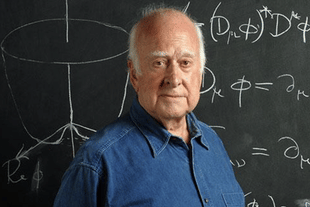News Brief
Peter Higgs, Nobel Prize Winner British Physicist Who Discovered The 'God Particle', Dies At 94
Kuldeep Negi
Apr 10, 2024, 02:59 PM | Updated 03:34 PM IST
Save & read from anywhere!
Bookmark stories for easy access on any device or the Swarajya app.


British physicist Peter Higgs, renowned for conceptualising the Higgs boson particle, has passed away at 94 years of age.
Edinburgh University confirmed his death in a statement, saying that he died "peacefully at home on 8 April".
Higgs gained global recognition for his theoretical prediction in the 1960s of the Higgs boson, which plays a crucial role in conferring mass to other particles.
This groundbreaking idea, conceived during his tenure at Edinburgh University, was experimentally confirmed in 2012 at CERN, Switzerland.
Peter Higgs' Life
Peter Higgs was born on 29 May 1929 in Newcastle upon Tyne, a city in England.
He graduated in 1950 with a degree in physics from King’s College London. A year later, he was awarded an MSc and in 1954 acquired his PhD.
He discovered Edinburgh during a visit to the summer festival season as young man, and went on to make the city his home.
Professor Higgs joined the staff of the University of Edinburgh in 1960, when he took up a lectureship at the Tait Institute of Mathematical Physics.
He was promoted to Reader in 1970, and to a Personal Chair of Theoretical Physics in 1980. He retired in 1996, becoming Professor Emeritus.
In 2012, experiments at the Large Hadron Collider particle accelerator at CERN finally confirmed the existence of the Higgs boson.
The following year, Professor Higgs was awarded the Nobel Prize in Physics, jointly with Professor François Englert of the Université libre de Bruxelles.
What is Higgs Boson
In the 1960s, Peter Higgs and other physicists proposed the existence of a special particle, named Higgs Boson, that would explain why other particles have mass.
The Higgs boson, often referred to as the "God particle," is a fundamental element in the field of particle physics, discovered through the collaborative effort of scientists worldwide, culminating in experiments at the Large Hadron Collider at CERN.
To understand its significance, it helps to know a bit about particle physics, which studies the smallest known building blocks of the universe and the forces that govern their interactions.
The theory suggests that particles acquire mass by interacting with the Higgs field, a universal field thought to exist throughout space.
The Higgs boson is the smallest excitation of this field, similar to a wave in an ocean, representing a fundamental particle associated with the Higgs field itself.
Before the Higgs boson's discovery, the Standard Model of particle physics—which describes the fundamental forces and categories of particles—predicted the existence of this particle but it had not been observed directly.
The discovery of the Higgs boson at CERN in 2012 confirmed this aspect of the Standard Model, marking a significant milestone in the understanding of how the universe works at a fundamental level.
Kuldeep is Senior Editor (Newsroom) at Swarajya. He tweets at @kaydnegi.





